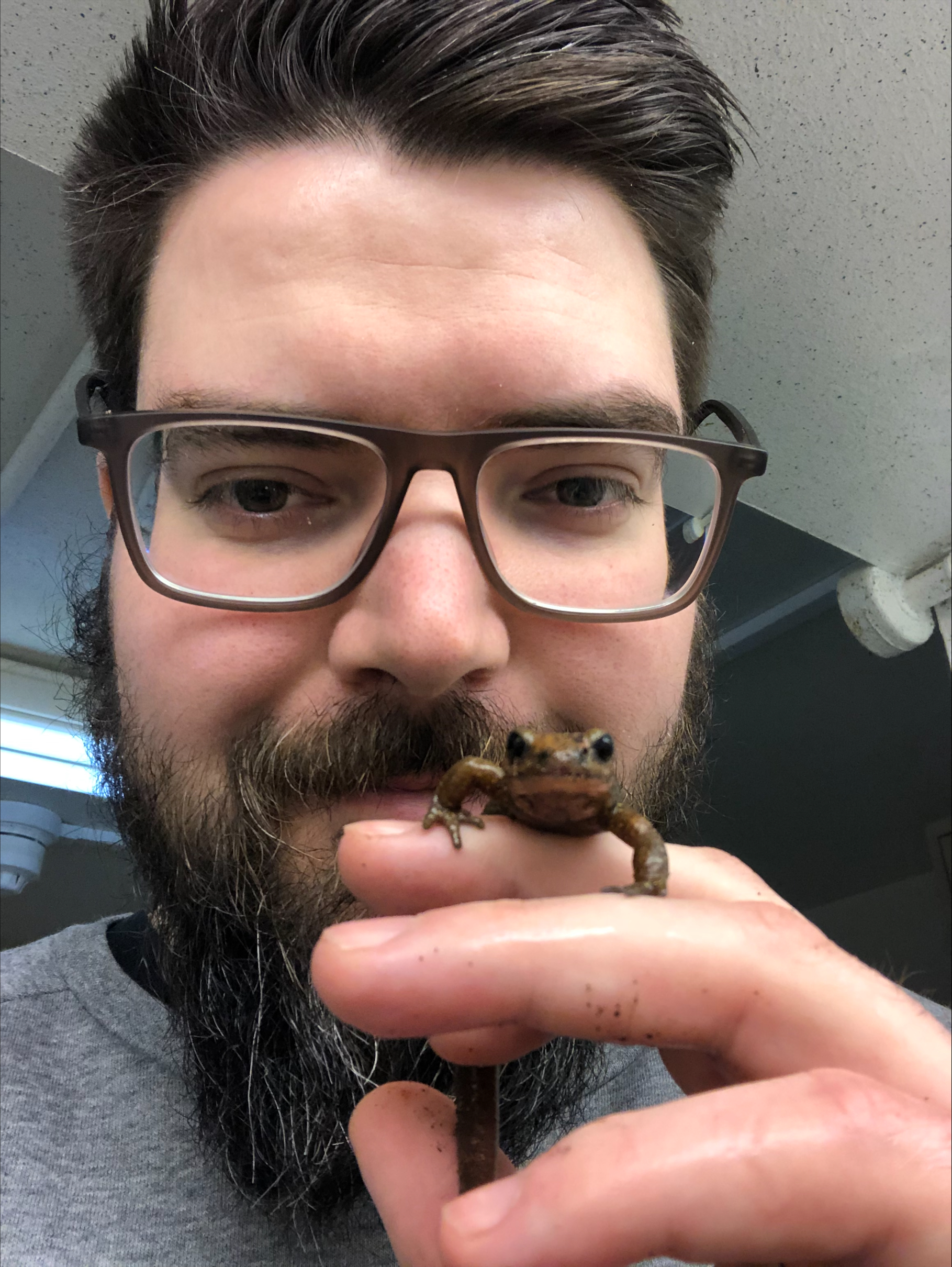Nicholas Robert Strowbridge
Telephone: +44 (0) 7498 335521
Email: 2694872s@student.gla.ac.uk or N.Strowbridge.1@research.gla.ac.uk
https://orcid.org/0000-0001-6040-5788
Research title: Genetic mechanisms of amphibian colour pattern and toxicity in the natural environment
Research Summary
Research Summary
Broadly, Nic is interested in evolutionary genetics, or the use of genetics/omics to understand adaptive traits. He is particularly interested in udnerstanding the underlying molecular mechanisms of putatively adaptive traits, including but not limited to epigenetics and epitranscriptomics. Furthermore, he is interested in using phylogenetic methods to understand the evolution of these traits across species. His research at the University of Glasgow involves working with multi-omic datasets to investigate evolution and the underlying molecular mechanisms that play a role in adaptation, using colour as the phenotypic trait of interest.
Evolution of colouration within Salamandra
For one of Nic's main projects he is using reducded representation DNA sequencing to understand how colour and pattern evolved across species within Salamandra. Salamandra is a genus of true salamanders, consisting of six different species and up to 25 subspecies. Salamandra is well-known for its species' striking black and yellow colouration; however, there are drastic intra- and interspecies colour and pattern differences. Using phylogenetics, Nic will investigate how these different colours and patterns evolved across the genus.
Contributions of epigenomic and epitranscriptomic methylation to animal colouration
In this project, Nic explored the emerging roles of epigenomic and epitranscriptomic methylation in shaping animal colouration, focusing on how these molecular mechanisms contribute to both fixed and dynamic pigmentation traits. While the genetic basis of colour is relatively well understood, a significant portion of phenotypic variation remains unexplained. Nic's work reviewed and synthesised recent findings showing that DNA methylation (m⁵C) and RNA methylation (m⁶A) can influence colour development, plasticity, and inter-individual variation. Nic highlighted case studies across diverse taxa, from temperature-induced colour shifts in aphids to methylation-linked coat patterns in mice and sheep, demonstrating how methylation can act on both coding and noncoding regions, and across developmental stages. This work also emphasised the need for functional validation and the potential of new sequencing technologies to uncover methylation patterns at single-nucleotide resolution, offering a more complete understanding of the molecular architecture underlying animal colouration. See the full paper in Trends in Genetics: https://www.cell.com/trends/genetics/fulltext/S0168-9525(25)00098-8
Molecular mechanisms of colouration
In a further project, Nic will investigate the underlying molecular mechanisms responsible for the drastic colour variation within S. salamandra bernardezi. For this project, Nic is developing a de-novo transcriptome using an individual from S. salamandra bernardezi. Following from this, Nic will sample representative colour morphs within this subspecies and use direct RNA sequencing from the Oxford Nanopore Technologies (ONT) sequencing platform to deduce if RNA methylation and gene expression may play a role in the evolution of these colouration differences.
Supervisors
- Professor Kathryn Elmer
- Professor Mike Ritchie
Additional Information
Service
Post-graduate student representative - October 2022 to October 2024.
Volunteering
Naturally Speaking contributor - October 2022 to present (Naturally Speaking website)


